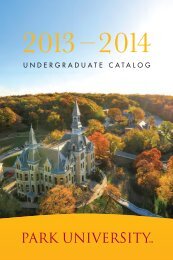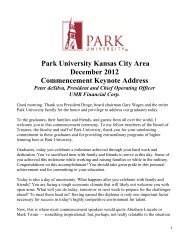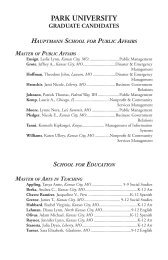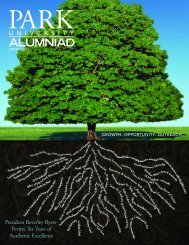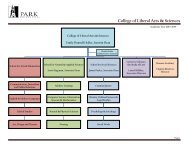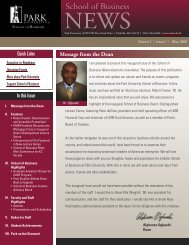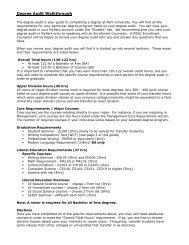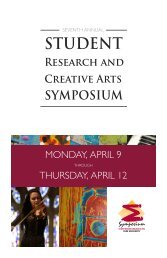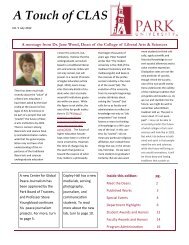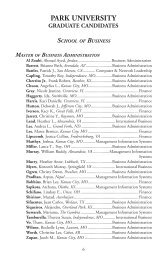How to Write a Radio Serial Drama for Social Development- PDF
How to Write a Radio Serial Drama for Social Development- PDF
How to Write a Radio Serial Drama for Social Development- PDF
You also want an ePaper? Increase the reach of your titles
YUMPU automatically turns print PDFs into web optimized ePapers that Google loves.
Chapter Two: Writing Begins: The <strong>Write</strong>r’s Brief 15<br />
• Be motivated <strong>to</strong> discuss the ideas with family and community members;<br />
• Know where <strong>to</strong> go <strong>to</strong> obtain further in<strong>for</strong>mation; and<br />
• Be willing and ready <strong>to</strong> adopt the behavior.<br />
The audience is not expected <strong>to</strong> learn and recall specific technical details, as<br />
they are in a technical knowledge series.<br />
For example: A nontechnical radio drama produced in Indonesia was<br />
designed <strong>to</strong> introduce the concept of a prosperous family and <strong>to</strong><br />
encourage listeners <strong>to</strong> take steps <strong>to</strong> overcome poverty. The program,<br />
entitled Butir Butir Pasir Di Laut (Grains of Sand in the Sea), sought <strong>to</strong>:<br />
2<br />
• Help community members understand a new term: “the prosperous<br />
family;”<br />
• Encourage community members and midwives <strong>to</strong> use the term;<br />
• Explain the main characteristics of “the prosperous family;”<br />
• Encourage listeners <strong>to</strong> talk with local health workers about “the<br />
prosperous family;”<br />
• Instruct listeners in how <strong>to</strong> apply <strong>for</strong> government start-up loans so<br />
they could become involved in small businesses of their own.<br />
The only specific facts the audience was required <strong>to</strong> learn were where <strong>to</strong> go<br />
<strong>for</strong> more in<strong>for</strong>mation on making your family prosperous and how <strong>to</strong> apply<br />
<strong>for</strong> a government loan.<br />
Technical Knowledge Programs<br />
Technical knowledge programs are designed <strong>to</strong> teach specific skills and new<br />
practices <strong>to</strong> a chosen audience. They are frequently used <strong>for</strong> distance<br />
education, with listeners expected <strong>to</strong> recall the in<strong>for</strong>mation accurately and<br />
use it correctly. Be<strong>for</strong>e preparing this type of program, researchers must<br />
measure as precisely as possible the existing knowledge, attitudes, and<br />
practices of a sample of the chosen audience. At the serial's end, the<br />
audience's acquisition of new technical in<strong>for</strong>mation is measured once again<br />
<strong>for</strong> any change.<br />
For example: The Bangladeshi radio magazine, Under the Green<br />
Umbrella, included a serial drama designed <strong>to</strong> rein<strong>for</strong>ce field workers'<br />
skills. Other segments of the radio program gave field workers specific<br />
training in working with community members, counseling couples on<br />
child spacing, and assisting clients with difficulties they might experience<br />
during contraceptive use. These skills were then demonstrated and<br />
rein<strong>for</strong>ced in the drama. Field workers who listened <strong>to</strong> the drama were<br />
expected <strong>to</strong> learn and be able <strong>to</strong> use:<br />
• Specific interpersonal communication skills;<br />
• Detailed knowledge of how <strong>to</strong> help clients choose and use<br />
contraceptive methods; and<br />
• Particular steps <strong>to</strong> take <strong>to</strong> reach and work with community members<br />
<strong>to</strong> encourage both personal and community development.



